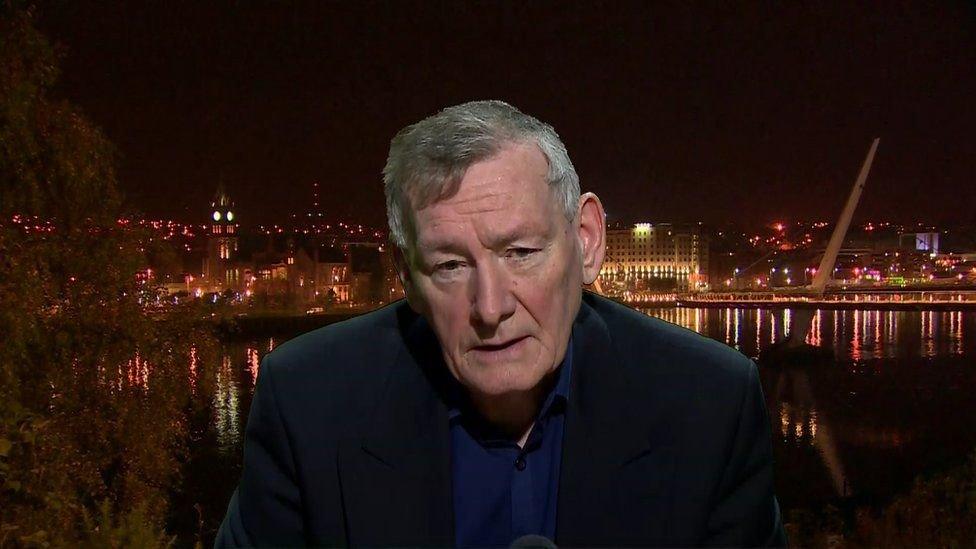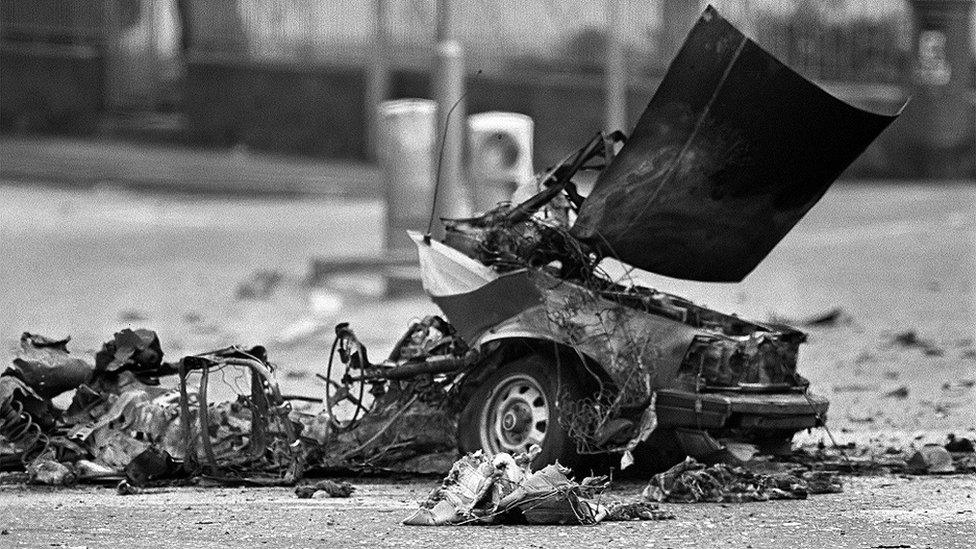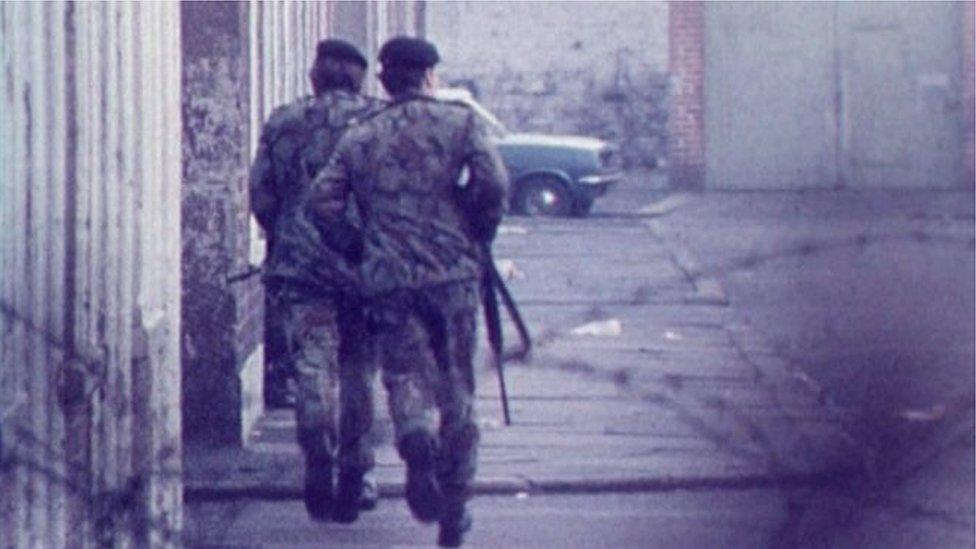Denis Bradley: Government made 'major blunder' over legacy plans
- Published

Denis Bradley previously worked with the former Church of Ireland Primate, Dr Robin Eames, to produce a report into dealing with legacy issues
One of the authors of a major report into dealing with the legacy of the Troubles has said the UK government's presentation of its proposals "made the situation worse".
Denis Bradley said his criticism was not because everything the government said was "bad but because of the way they said it".
The government's plans would see an end to Troubles-related prosecutions.
It would also end future inquests and civil actions.
In 2009, Denis Bradley worked with former Church of Ireland Primate, Dr Robin Eames, to produce a report into dealing with legacy issues., external
Mr Bradley criticised the government's plan "because of the bias of which they presented it".
He also said a commission overseeing legacy issues should be chaired "probably by somebody like a former president of the United States".
Prime Minister Boris Johnson had said the legacy proposals would allow Northern Ireland to "draw a line under the Troubles".
The proposals included provisions for a statute of limitations, a legal mechanism which would bar future prosecutions of members of the security forces as well as ex-paramilitaries.
However all of Northern Ireland's political parties oppose the plans - last week members of the Northern Ireland Assembly voted to oppose the UK government's plans.
Many victims' groups in Northern Ireland have also voiced their opposition as well as the Irish government, with some labelling the proposals a "de-facto amnesty".
'Unquestionable authority'
Mr Bradley, who is a former vice-chairman of the Northern Ireland Policing Board, was speaking for the first time about the proposals.
He criticised the UK government for presenting their proposals primarily "to a constituency of (military) veterans and the Conservative Party itself rather than to the totality of the issue".
Speaking to BBC Radio Ulster's Good Morning Ulster programme, he said "nobody trusts anybody in this situation" and called for the legacy process to be overseen by "people who are completely devoid of any bias within the situation".
He said the UK and Irish governments were "tainted so badly" they needed to hand the process over to "an authoritative body which actually can bring this forward and bring it ultimately as much satisfaction as can be delivered".
"What we need is a legacy commission of about three people - of very high quality, completely independent, completely neutral within this situation, of authority which cannot be questioned."
He suggested the commission would be "chaired probably by somebody like a former president of the United States, that type of quality, that type of level, who will take all of the proposals that are already on the table, take all the work that's already been done over the last 10 years or so and actually bring it to an end over the next five years".
He said it would involve giving victims "complete access to all the files, all the records and all the people who are prepared to actually approach them and give whatever information they have".
"The fact the British government didn't make that the primary issue in their presentation was a major, major blunder and a major mistake," he added.
Mr Bradley said that "fewer and fewer cases are reaching the courts" and the criminal justice system had "already ruled itself out" of dealing with legacy issues.

On Tuesday, Sinn Féin President Mary Lou McDonald repeated calls for Northern Ireland Secretary Brandon Lewis to withdraw the UK's current proposals.
Ms McDonald said her party would not prop up any "fake process".
It followed a meeting with the families of five people who were killed by the British Army on 9 July 1972 in Springhill in Ballymurphy in west Belfast.
"We continue to press very strongly the government in Dublin, but also key people in the United States of America to really confront Boris Johnson and his government on this matter, because it simply cannot proceed," she added.
"There is a unanimous view right across politics on this island that what the Tory government is proposing to do is wrong and now we need to press that home."
Victims campaigner Kenny Donaldson from the South East Fermanagh Foundation said that in relation to the government he believed there was "a level of naivety around what the actual implications of all these issues are".
"It is beyond a huge psychological ask of any victim to basically sign off on the closing down of the criminal justice system within any society and indeed, if that were to happen, it does question whether or not a society continues to be a democracy or not," he said.
Related topics
- Published20 July 2021

- Published14 July 2021
